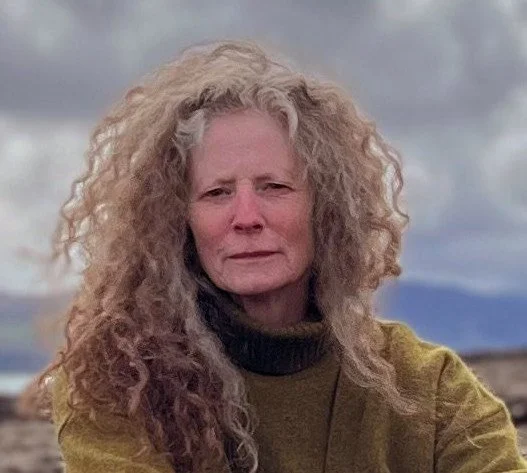It is maybe odd to only write about where I live — all four of my novels are set in and around Cobalt, and most of my musings & reflections are also generated from this landscape. Odd maybe, but I feel a sense of the imperative to pay attention to the land I inhabit. Scrappy and used up as it is, and still showing the scars of short-lived but hyper-industrial activity, it is a place worth seeing, as in discovering the minutiae, the magic, the vulnerabilities, and the joy, in and of and around this place that I inhabit. It seems to me now obvious, though I wish I had seen it sooner in my life, that any hope we have of being better, of finding a way of being in the world that is non-destructive, lies in seeking atonement from the land we inhabit, its creatures and beings, wherever that happens to find us.
Power Q & A with Melanie Schnell
Several years ago the idea of what exists beneath the ground, beneath our feet, began to worry itself away in my brain. It all began with learning about the scores of indigenous children who died at the Residential Schools. Then I read more stories of mass graves being unearthed, such as hundreds of infant remains at a former home for unwed mothers in Ireland, and a mass grave recently discovered in Syria from Assad’s crackdown on protestors.
Power Q & A with Aamir Hussain
The core inspiration of the story does come from my lived experience of coming from a family of Muslim women who are incredibly accomplished in many different fields and my attempt to reconcile this with the image of my faith in the West of being incredibly misogynistic and oppressive towards women. An image that has been a part of Western culture for hundreds of years but came into prominence as a part of the incessant drumbeats successfully justifying wars against Muslim Majority countries for the past few decades.
Power Q & A with Karen Smythe
y novel began as a book about the hidden lives of wealthy retired people living in a fictional small town in Ontario that had transitioned from agricultural to a winery- and tourist-based economy. When one character with a past in wartime Germany emerged, threads opened up that I turned into storylines about the responsibility to remember and be accountable for atrocities in World War 2.
Power Q & A with Bruce Hunter
Frontenac House Press has published a gorgeous reissue of Bruce Hunter’s award-winning novel of love, disability, and wildness, In the Bear’s House(May 23, 2025.)
Set in 1960s Calgary and Alberta ‘s backcountry, this reissue of In the Bear’s House tells the story of a creative young mother, Clare Dunlop, raising her deaf son against the insurmountable odds of poverty, mental illness and hardship. In the Bear’s House is ultimately about listening to the wild and the wilderness, and what we lose when it’s gone.
We are honoured to have Bruce join us to answer a question about the rebirth of his much-loved story.
Power Q & A with Caitlin Galway
The longer form definitely comes naturally to me, though it’s not something I set out to do, so much as a reflection of how I think. I’ve learned to see my own intuitive approaches more clearly, and how to amplify or deconstruct them, challenge or upend them. Something particular that I’ve realized is that as I write, everything is somewhat of a spiderweb; ideas emerge connected to several other ideas, which connect to one layer, then another, and so on. It’s part of what feeds me electricity as a writer: this instantaneous, sparking interaction between narrative, symbolism, philosophy, psychological and emotional interiority, history, and commentary, and I find that it means the story will probably need more breathing room.
Power Q & A with Saad Omar Khan
Saad Omar Khan’s gorgeous novel, Drinking the Ocean (Wolsak & Wynn, May 6, 2024) is a tender and absorbing story of love, family, and the complexities facing Muslims in the West. It has been named one of the 49th Shelf’s most anticipated fiction books of the year and is also one of the most anticipated books within our community.
Moving between Lahore, London, and Toronto, Drinking the Ocean is a story of connections lost and found and of the many kinds of love that shape a life, whether familial, romantic or spiritual.
Some thoughts on accuracy and research in historical fiction: A special feature by Tim Welsh
I recently read Robert Penner’s The Dark King Swallows the World, a novel set in Cornwall during World War II. I liked it a lot, and was surprised to learn that a few (of the otherwise uniformly positive) reviews had called it out for a lack of historical accuracy.
My initial response was: who cares? Complaining about historical accuracy in a work of fiction seems, to me, like bragging about being the best at doing homework. Missing the point, a little obnoxious.









